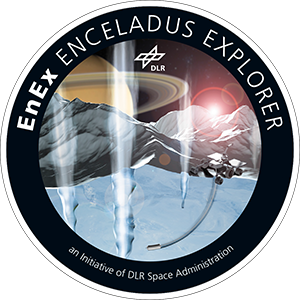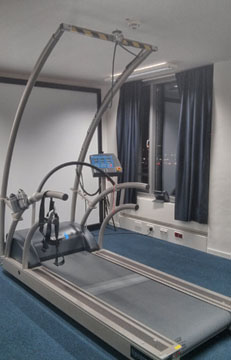Der Frauenanteil in Informatikstudiengängen und -berufen ist mit rund 20 Prozent in Deutschland nach wie vor sehr niedrig. Dies zu ändern und den Anteil von Frauen in der Informatik nachhaltig zu erhöhen, hat sich das jetzt gestartete Verbundprojekt SMILE auf die Fahne geschrieben: Anhand des hochaktuellen Themas der intelligenten Umgebungen sowie eines darauf abgestimmten didaktischen Konzepts soll der Zugang zu Informatikthemen für junge Frauen und Mädchen geschaffen und kontinuierlich gefördert werden. Als Lern- und Experimentierumgebungen in dem überregionalen Projekt dienen dabei u.a die Labore der Arbeitsgruppe für Kognitive Neuroinformatik im Fachbereich 3 an der Universität Bremen.
The goal of this project is the simulation of an autonomous deep-space mission for asteroid mining. The retrieval of valuable resources available on asteroids is essential for future space missions.
The goal of the mission "Enceladus Explorer" is the autonomous navigation of a subsurface melting probe through deep ice to search for extraterrestrial life on Saturn's moon Enceladus.
The goal of the mission "Enceladus Explorer" is the autonomous navigation of a subsurface melting probe through deep ice to search for extraterrestrial life on Saturn's moon Enceladus. As a first step, the probe will collect a clean in-situ sample of an isolated subglacial sea in Antarctica. Autonomous navigation through such unknown and GPS-denied environments is a challenging task, especially for current technical systems. In contrast, biological systems are very well adapted to handling uncertain, incomplete and unexpected information. Therefore our aim is to use bio-inspired multi-sensor fusion approaches as well as cognitively motivated strategies for an autonomous navigation solution. The project is a collabration with other universities and is funded by the German Aerospace Center (Deutsches Zentrum für Luft- und Raumfahrt; DLR).

weorient - Sensorimotor navigation assistance for people with dementia impairments
The goal of this research project is to develop a technical assistance system tailored to the highly specific deficits in the domain of spatial cognition of people with mild cognitive impairments and dementia.

weorient - Sensorimotor navigation assistance for people with dementia impairments
The goal of this research project is to develop a technical assistance system tailored to the highly specific deficits in the domain of spatial cognition of people with mild cognitive impairments and dementia.
The assistive technology aims at preventing the loss of spatial orientation, allowing for prolonged autonomy and a more independent life. Espescially people with Alzheimer's disease often show very specific impairments in the early stages of the disease, with spatial orientation in particular. Considering these problems, a landmark-based navigation will be developed in this assistance system using cognitive strategies of sensorimotor spatial orientation as well as including autobiographical important routes and landmarks. In addition, the system involves the user's emotional state, which allows for a more plausible user interaction and more appropriate assistive functions.
This project is a preliminary scientific project. Funding is provided by the Federal Ministry of Education and Research (BMBF).

We have 131 guests and no members online